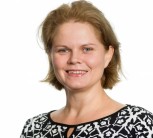Professor Janine Wichmann is an associate professor at the School of Health Systems and Public Health (SHSPH), Faculty of Health Sciences, University of Pretoria. She is an environmental epidemiologist with a primary interest in air pollution exposure assessment and health effects. Since 2008, she has focused on climate change health effects, and mainly the short-term heat effects on and mortality and morbidity. She gained research and teaching experience in Europe from 2002 to 2012. Prof Wichmann has been a visiting researcher at the University of Gothenburg, Sweden, since 2013.
She has lectured in various postgraduate (master's and PhD level) courses at the SHSPH for the past 18 years. She has also lectured in various postgraduate (master's and PhD level) courses at the University of Copenhagen during 2009-2012. She is the PhD coordinator at the SHSPH.
She is committed to knowledge sharing and education which is evident in my postgraduate supervision track record at UP and other local as well as international universities.
Prof Wichmann’s long-term research objective is to estimate the burden of non-communicable disease due to air pollution and climate change indicators whilst training postgraduate students in these skills. Her research addresses the evidence gaps in air quality management plans as required by the National Environmental Management Act: Air Quality Act (2005) in South Africa.
In 2016, she received a prestigious Fulbright Research Visiting Scholarship. Since 2017, professor Wichmann has been the local principal investigator for short-term epidemiology studies of the Multi-Angle Imager for Aerosols (MAIA) project of the National Aeronautics and Space Administration (NASA). This is the first time NASA has entered into a partnership with epidemiologists and health organisations using space-based data to study human health and improve lives.
More from this Researcher
Dr Bukola Olutola did her undergraduate studies at the University of Ibadan in Nigeria and has been doing research at the University of Pretoria (UP) for the past 10 years. She says UP provides the ideal atmosphere for researchers. “We have access to journal articles through the library, and there are many research workshops to help both upcoming and established researchers to improve their research.”
Dr Olutola is a lecturer in public health at IIE MSA, formerly Monash South Africa, and an Extraordinary Lecturer at UP’s School of Health Systems and Public Health. Her research into air pollution contributes to the betterment of the world because, according to the World Health Organisation, pollution is the highest environmental cause of disease and premature death. Ambient (outdoor) and household air pollution causes seven million premature deaths annually, which amounts to 16% of global mortality. “Studies on pollution are relevant to find ways to prevent deaths arising from pollution,” says Dr Olutola.
A recent highlight for her was the publication of her findings of the modifying effect of temperature on the association between air pollution and hospital admission for respiratory disease in one of South Africa’s air pollution priority areas.
Her research matters, she says, because these findings are important in guiding policymakers to make appropriate decisions. Air pollution has always been a problem, especially in certain areas of South Africa. It affects the respiratory and cardiovascular systems of people who live in areas with high levels of air pollutants. Coupled with COVID-19, which also affects the respiratory system, this combination could place a great burden on already strained healthcare systems.
Dr Olutola is part of a research group that is conducting epidemiology studies on the interaction effects of air pollution and climate change indicators on mortality and morbidity in South Africa. She is also involved with another research group that is working on the health effects of metals in women and in utero babies.
From 2015 to 2017, the late Professor George Djolov of the Department of Geography, Geoinformatics and Meteorology in UP’s Faculty of Natural and Agricultural Sciences worked with Dr Olutola to use the Air Dispersion Potential (ADP) index for her PhD Studies. “Unfortunately, we could not continue because he passed away,” she says.
Professor Djolov, who was born in Bulgaria, had an extraordinary academic career at various universities in southern Africa, among others. After his formal retirement, he joined UP as a meteorologist and Extraordinary Professor in 2007, and was highly active over the following decade. In his final three years, he managed the UP Laboratory for Atmospheric Studies.
Dr Olutola says that Prof Halina Rollin of the School of Health Systems and Public Health inspired her research efforts. “She is never tired and is always full of ideas for research.” Dr Olutola has many academic role models, and particularly admires Prof Janine Wichmann’s work ethic. “Prof Wichmann is always there to support students, not necessarily only ‘her’ students. During my PhD studies, I could ask for her professional advice whenever I was stuck.”
Dr Olutola’s dream is to be able to continue doing research, especially in the field of epidemiology. She encourages school learners and undergraduates interested in her field to continue to learn and to never give up.
For recreation, she watches documentaries.
More from this Researcher


 Story
Story
 Infographic
Infographic
 Story
Story
Get Social With Us
Download the UP Mobile App